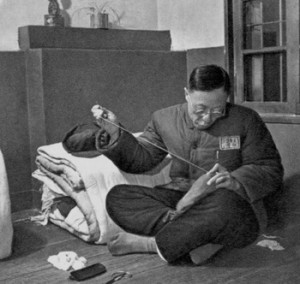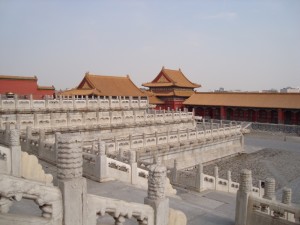From Mao-Tse Tung-er Deshe (In ‘Mao Tse-tung’s Country’ by Maulana Abdul Hamid Khan Bhashani), pp. 45-46
Pu Yi spoke of his days in the camp with intense feeling. In his voice there was not the faintest trace of disaffection or resentment. I said: ‘Pu Yi, you’ve told me about your days as a prisoner.
Now I want to hear about your life as a ruler. How did you become the monarch of Manchukuo?’

Pu Yi laughed. A strangely serene laugh. He said: ‘From my infancy I was taught – I was the lord of China. That was why I could not accept it when my China was declared a republic. How could I accept that my dynasty would end in my own era? Naturally I wanted a restoration of the monarchy.
Japan had a long-standing policy of aggression towards China. That policy and my desire for a restoration resulted in the link with Japan. We both used each other.
My hope was that with Japanese help I would be a ruler again, by regaining the throne of Manchukuo. At the same time the Japanese were looking for someone to rule and occupy China. They adopted me as their coolie. This was the principal reason for my alliance with the Japanese.’
‘You want to know about my ‘life as a ruler’. There’s not much to tell.
Those were the most wretched, the most unfortunate days of my life, filled with memories of my offenses against humanity. But today I can say with pride, I can say with joy, that I am a changed human being, that I have become a true citizen of China. This reformed life is a life of happiness. The earlier life was like a ghostly existence, darkened by the curses of phantom souls…
‘I often say to my friends, the Pu Yi of the past is no longer alive. A new Pu Yi has been born. That is why I don’t want to talk about the past.’
__________________
* Arnold C. Brackman, The Last Emperor, 1975.

